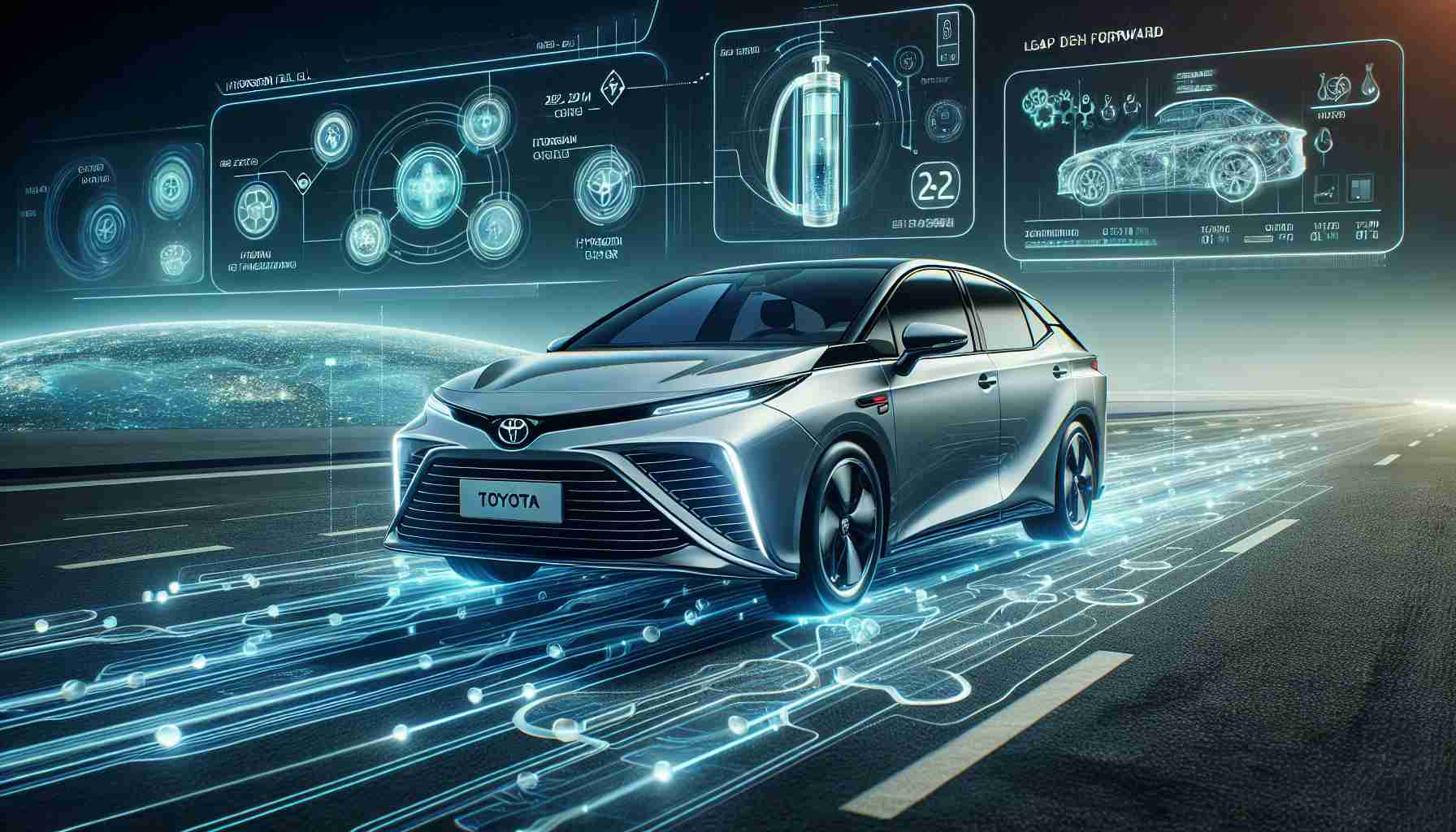- Toyota introduces a revolutionary third-generation hydrogen fuel cell system, emphasizing improved design and efficiency.
- The new system is noted for being smaller, lighter, and more durable, offering over 20% increased travel range, surpassing 480 miles on a single tank.
- Potential reduction in manufacturing costs suggests the possibility of more affordable hydrogen-powered vehicles.
- Toyota expands hydrogen usage beyond passenger vehicles to generators, locomotives, and construction equipment, promoting clean energy in diverse sectors.
- The new era of hydrogen technology debuts at the International Hydrogen & Fuel Cell Expo, highlighting Toyota’s commitment to a sustainable future.
Amid dwindling sales numbers and criticisms, Toyota strides decisively into the hydrogen era with its ambitious third-generation fuel cell system. Like an artisan perfecting a masterpiece, Toyota unveils a system that’s not just a step forward but a leap toward a vision of hydrogen integration into modern life. This new fuel cell marvels with its smaller, lighter, and more efficient design, promising a remarkable enhancement in durability and reach.
Imagine gliding through vast landscapes with diesel-like reliability and a whisper of a carbon footprint. Toyota claims this system doubles the durability of its predecessor and ensures its upkeep is as effortless as coaxing a dandelion to bloom. The road stretches farther than before; vehicles equipped with this innovative cell can now travel over 20% more, teasing a future where a single tank sends you soaring beyond 480 miles.
Cost remains a pervasive hurdle in alternative energy adoption. Yet, Toyota’s strides in streamlined cell design and production signal a reduction in manufacturing expenses—an enticing hint at more affordable hydrogen-powered vehicles on the horizon.
Despite previous lukewarm reception, Toyota extends its hydrogen aspirations beyond passenger vehicles. Stationary generators, locomotives, and construction giants whisper a hydrogen-powered promise. In environments where traditional power sources falter, hydrogen stands as a stalwart ally, offering clean, silent strength without sacrifice.
As Toyota prepares to showcase this pioneering technology at the International Hydrogen & Fuel Cell Expo in Tokyo, a new era looms. The dawn of a hydrogen society, etched by Toyota’s vision, sketches a future landscape where innovation meets sustainability—a testament to resilience and relentless pursuit of cleaner horizons.
Is Toyota’s Hydrogen Revolution Ready to Transform the Automotive Industry?
Features, Specs, & Pricing
Toyota’s third-generation hydrogen fuel cell system distinguishes itself with several key advancements:
– Smaller and Lighter Design: The system’s compact nature allows it to be integrated into a variety of vehicle types and non-automotive applications, enhancing versatility.
– Efficiency Improvements: The new system boasts a 20% increase in range, allowing vehicles to cover over 480 miles on a single tank, surpassing many traditional combustion engines in terms of efficiency.
– Enhanced Durability: Toyota claims twice the lifespan compared to previous models, which could mean fewer replacements and long-term savings for consumers.
While Toyota hasn’t disclosed specific pricing for vehicles equipped with this new technology, industry trends suggest that the cost will decrease as the production process becomes more efficient and scales up.
Real-World Use Cases
Toyota envisions applications for this fuel cell technology beyond traditional vehicles:
– Stationary Generators: Offering reliable and clean power in off-grid locations.
– Locomotive and Industrial Applications: Facilitating greener alternatives for rail transport and heavy equipment.
– Public Transportation: Hydrogen-powered buses could reduce emissions in urban centers.
Market Forecasts & Industry Trends
The hydrogen fuel cell market continues to expand, with projections suggesting a growth rate of over 20% annually by 2030. Several factors contribute to this trend:
– Government Incentives: Many countries offer subsidies and incentives for hydrogen technology to meet environmental goals.
– Infrastructure Development: The number of hydrogen refueling stations is increasing, which supports wider adoption of hydrogen-powered vehicles.
Controversies & Limitations
While hydrogen fuel cells present a promising alternative to fossil fuels, they are not without challenges:
– Infrastructure: The lack of adequate refueling infrastructure is a significant barrier to widespread adoption.
– Production Costs: Although costs are reducing, the initial price of hydrogen technology is still high compared to conventional vehicles.
– Energy Source: The sustainability of hydrogen production is contingent on using renewable energy sources, as current methods predominantly rely on natural gas.
Security & Sustainability
Hydrogen fuel cells offer a clean energy source with water as the only emission, contributing significantly to sustainability goals. However, ensuring secure and efficient hydrogen production is essential to realizing full environmental benefits.
Tutorials & Compatibility
Integrating this technology requires aligning with current vehicle designs and requires minimal training for existing automotive specialists, thanks to Toyota’s efforts to streamline design and usability.
Pros & Cons Overview
Pros:
– Zero-emission technology
– High efficiency and reliability
– Significant range extension over previous iterations
Cons:
– Infrastructure limitations
– High initial costs
– Dependency on a green hydrogen supply chain
Actionable Recommendations
– Advocacy for More Stations: Engage local and national governments to increase public and private investment in hydrogen refueling infrastructure.
– Explore Financial Incentives: Look for tax credits and rebates for hydrogen fuel cell vehicles.
– Stay Informed: Monitor developments in hydrogen fuel technology to identify when it might become a feasible option for you.
For more on hydrogen technology and innovations, you can visit the official Toyota website to stay updated on their latest initiatives.
As Toyota forges its path into a hydrogen-fueled future, monitoring these developments and participating in early adoption can offer environmental and economic advantages, promising cleaner and more efficient transportation solutions.
